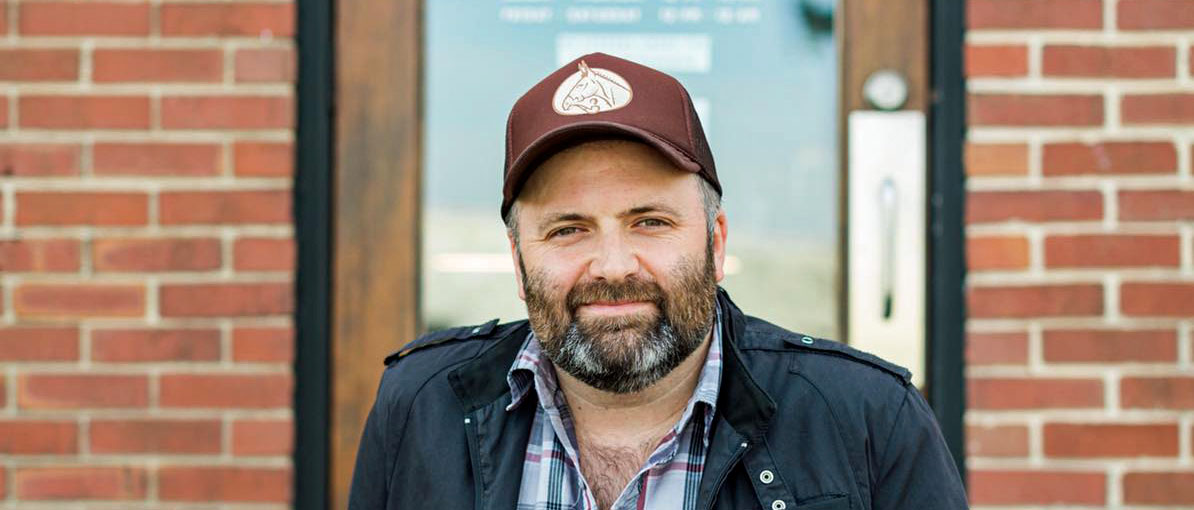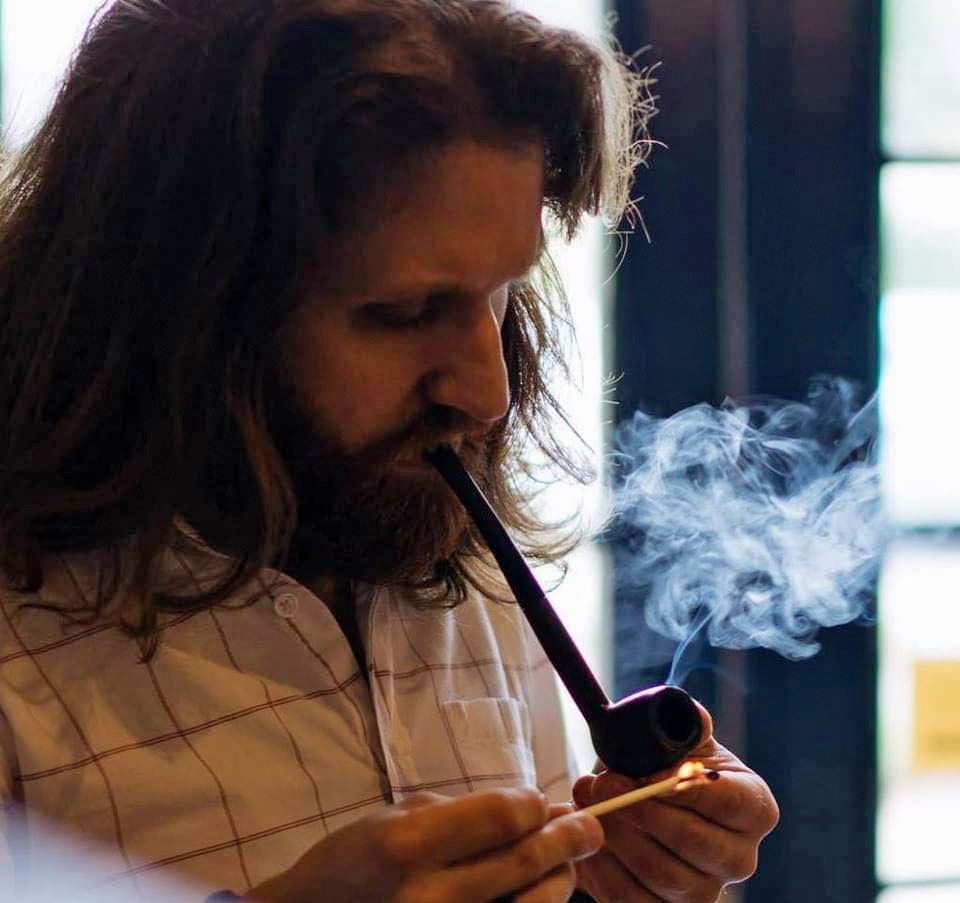By C.R.S. Lyles
 Allow me to pose a question: If you were able to sacrifice the few for the many, throw a couple of people under the bus so that the mass majority would be saved, would you do it?
Allow me to pose a question: If you were able to sacrifice the few for the many, throw a couple of people under the bus so that the mass majority would be saved, would you do it?
This question has been at the core of the utilitarian conundrum since the discipline’s inception, and yet the mass majority has still failed to see the relevance of the question or how it applies to modern life.
Therefore, allow me also to pose a scenario, a more specific example that has arisen from this age-old philosophical debate: If you were able to update children’s health care, ensure that the programs utilized to help pay medical costs for children in need continued for the next five years, but in exchange you had to increase tobacco taxes and indirectly encourage people to smoke so that the program could be funded, would you sacrifice the health of adult Americans for our country’s children?
 In 2007, the State Children’s Health Insurance Program (SCHIP) was given additional funding via the Senate Budget Resolution’s permit to increase the cigarette tax by between 39-50 cents.
In 2007, the State Children’s Health Insurance Program (SCHIP) was given additional funding via the Senate Budget Resolution’s permit to increase the cigarette tax by between 39-50 cents.
In 2009, SCHIP received even further support with the passage of H.R. 2, which "increases cigarette taxes, the primary source of tobacco tax revenues from 39 cents to $1.00". While, as always, the bill sounds benevolent on the surface, there are still so many red flags that appear when you really think about what this bill has actually done that I’m quite honestly baffled as to the sheer blindness of my fellow countrymen.
Here’s a little run-down on what’s been going on with this issue lately:
- "Last year, Maine’s Democratic gubernatorial candidate, Libby Mitchell, proposed a renegotiation of the state’s liquor sales contract to raise money for higher education."
- "In 2007, the American Academy of Family Physicians urged Congress to raise the federal tobacco tax to fund expansion of SCHIP, so called Medicaid for children."
- "In Maine, a Democratic state legislator, Diane Russell, has even suggested that marijuana should be legalized and taxed, expressly to generate $8.5 million per year in sales tax revenues."
All these examples have been listed as a means to portray what the editor of the Pelican Post states so succinctly in their most recent article pertaining to this issue: "These examples have one common denominator: government makes one group of citizens dependent on the addiction-driven behavior of another group of citizens."
 I wish that it could be just tobacco that was facing such extensive tax increases, but given the current climate I fear that it will be all substances that will be used in some way or another to fund these health programs before too long, with tobacco and alcohol leading the charge, of course. But for now, given the context of this publication and the fact that the smoker’s witch-hunt is a far more interesting story, let’s just stick with the tobacco aspect.
I wish that it could be just tobacco that was facing such extensive tax increases, but given the current climate I fear that it will be all substances that will be used in some way or another to fund these health programs before too long, with tobacco and alcohol leading the charge, of course. But for now, given the context of this publication and the fact that the smoker’s witch-hunt is a far more interesting story, let’s just stick with the tobacco aspect.
One such website has only this aspect in mind especially. NoCigTax.com lists a comprehensive compilation of the many uses and abuses to which tobacco tax money has been put. Here are some of the more ridiculous uses: "broadband-cable networks in Virginia, upgrading public television stations with DVD technology in Nevada, harbor renovation and museum expansion in Alaska, rural economic development in Georgia, tax rebates in several states, and a People’s Trust Fund, which will generate interest income that can be spent at the legislature’s discretion in South Dakota."
I’m sorry, but isn’t the money generated by tobacco sales supposed to be used for funding to help aid the anti-smoking campaigns? Why isn’t this money going to the American Cancer Society? Honestly, I don’t find much of an issue with tobacco tax money being used to fund children’s health care, but at least have the decency to give both sides credence, because the current state of affairs is simply sending contradictory messages with using money garnered from "harmful and addictive substances" to fund frivolous research and states’ pet projects.
In the first article that I wrote for PipesMagazine.com, [Smokers: The Primary Investors In The American Lifestyle] I postulated that, because of the heady increase in taxes and the somewhat meager earnings that non-profit organizations and anti-smoking initiatives earn, smokers are indirectly the biggest financial backers of the American dream. However, in light of this new evidence, I feel I must rephrase my previous assumption: smokers are not the primary investors in the American way of life, but are in fact the primary investors in every facet of American life, including now not only health care initiatives, but something as mundane as updating the quality of state television.
The thing is, quite literally, that legislation directed at taxing tobacco is contradictory at best and downright paradoxical at worst. The government claims that small businesses are the backbone of America, but just recently in Nebraska a 225% increase to the excise taxes on certain tobacco products threatens to harm those very same businesses which they claim to support. Just because they’re selling tobacco and tobacco products does not mean that these businesses deserve any less than the same courtesy that is extended to all other avenues of business, and yet the witch-hunt continues.
 These are precarious times in which we live. The fable of the American dream is crumbling under the iniquities of its progenitors, and those who are left amidst the aftermath are the jaded, the cynical, and the skeptics. Smokers are finding themselves more and more aligned with these individuals based on the sheer effort it takes to enjoy something as simple as a smoke without having to fear criticism from passing strangers, unpleasant surprises at the cash register, or obnoxious commercials aired on television which depict everyday smokers as disgusting trolls who repulse everyone around them.
These are precarious times in which we live. The fable of the American dream is crumbling under the iniquities of its progenitors, and those who are left amidst the aftermath are the jaded, the cynical, and the skeptics. Smokers are finding themselves more and more aligned with these individuals based on the sheer effort it takes to enjoy something as simple as a smoke without having to fear criticism from passing strangers, unpleasant surprises at the cash register, or obnoxious commercials aired on television which depict everyday smokers as disgusting trolls who repulse everyone around them.
Therefore, I say that it’s high time that smokers get their due: if the money generated from my purchase of a pack of cigarettes inadvertently helps to fund a form of children’s Medicare, I would like a thank you from those passing strangers rather than a disgusted look. If every pull I take on a pipe leads to your state getting better quality television, I want a commercial aired that recognizes the vital role that smokers play in our society. And if I decide to enjoy a cigar, you better believe that I’m going to expect to pay what’s fair when I purchase it rather than feel guilty that I just spent half my paycheck so that the governor of Florida can buy himself a new golf cart.

Carter R. Lyles is a student at the University of Central Florida in Orlando, FL and at the University of Florida in Gainesville. He is a journalism/psychology major, and in addition to his work at Pipes Magazine, he has contributed articles to The Alligator, Thursday Night Magazine, and The Fine Print. |
















Haha everything is so true. I think the best way to convince hysterical and hypocritical people of their folly is to pick on their low intelligence and lacking common sense. However I have the feeling that it will take quite a while before the sheeple will have access to this information
Simply put, I agree
Well, I’m not sure I would settle for mere credit for having paid outrageous tobacco use taxes, but your idea would certainly reform the image of tobacco users — or at least inform the public of its revenue sources.
.
As for the broader issues your article brings to mind, I note that there are direct taxes such as income, property, and transfer taxes; and while I am opposed to them in principle (how did government survive prior to the 16th Ammendment of 1911 ? ), they seem to be a more equitable solution than putting the burden on one particular group (i.e. smokers).
.
And while I’m unhappy with, but not unalterably opposed to usage taxes, such as vehicle licensing, bridge and highway tolls, and gas taxes, I’m willing to pay for the conveniences they underwrite. I can even grudgingly deal with sin taxes (perhaps the earliest form) designed to discourage what the body-politic considers objectionable, because they can be addressed in the voting booth.
.
But what I absolutely cannot countenance is the inequity of arbitrarily taxing a politically weak group to meet revenue needs in totally unrelated areas. It is infuriating to learn that such revenues are often diverted by political interests and never reach their intended beneficiaries. That is nothing more than subterfuge and legislative larceny.
Correction: the 16th Ammendment passed in 1913.
To answer the original question about throwing somebody or something under the bus for the sake of the masses I have to wonder about having the masses lift the darn Bus!
p.s. I referring to lifting the bus so the few being thrown under the bus don’t get hurt.!
Do any of our “leaders” own a mirror? They must all be “graced” with strong stomachs or visually challenged. I continue to wonder just who these people work for?
Big Business. “The Masses”, as many of us like to think of ourselves, are either product on the shelf or consumer, and that’s the bottom line. Government’s main business is to stay in business, and confounding the law is a pastime. Great article, CRL
It’s the kind of contradictory mess described here that represents the political inequalities and excesses our society has produced. As pipe smokers, we had better unite and do it soon. We need to focus on a grassroots movement that is a well oiled PR machine and employs a sane voice against the onslaught of ravenous interest groups ripping us all off. Tobacco taxes are probably one of the best-worst examples of the misrepresentation of the efforts of an honest sector of the American public. Don’t people realize tobacco is one part of the backbone of agriculture upon which this nation was built? Unfortunately the cigarette industry’s megalomania has demonized the whole world of tobacco and we’re decades from reversing that unpopular image. In the meantime, batten down the hatches and take action well met fellows!